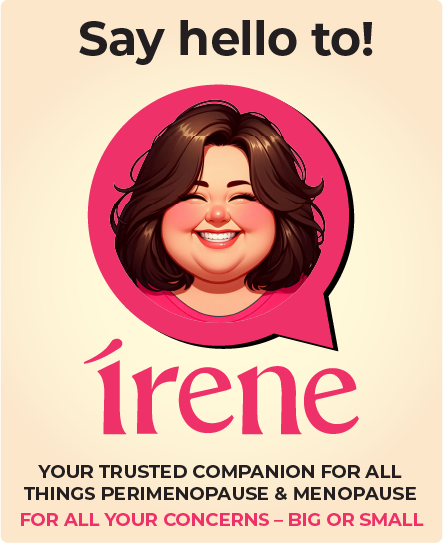Menopause and Intimacy: Overcoming Challenges and Enhancing Pleasure
Understanding Menopause and Its Effects on Sexual Health
Menopause marks a significant phase in a woman’s life, typically occurring between the ages of 45 and 55. It signifies the end of menstrual cycles for 12 consecutive months, leading to a decline in estrogen and progesterone production by the ovaries. This hormonal shift brings about various changes in the body, including significant effects on sexual health.
Hormonal Changes and Their Influence on Sexual Function
During menopause, the drop in estrogen levels can lead to vaginal dryness, thinning of the vaginal walls (vaginal atrophy), and reduced elasticity. These changes can cause discomfort during intercourse, leading to decreased libido and potentially affecting overall sexual satisfaction. It’s important to remember that these symptoms are common and can be managed effectively with appropriate interventions.
Tips for Improving Sexual Health After Menopause
1. Communicating with Your Partner
Open communication with your partner is essential during this phase. Discussing any discomfort or changes in sexual desire can foster understanding and support. Many couples find that openly addressing these changes can lead to finding new ways to maintain intimacy and satisfaction. Remember, you’re both in this together, and talking openly can make a world of difference.

2. Incorporating Lubricants and Moisturizers
To alleviate vaginal dryness and discomfort,using water-based lubricants during sexual activity can significantly enhance comfort. Additionally, regular use of vaginal moisturizers can help maintain vaginal health and elasticity over time, making intercourse more enjoyable. Don’t shy away from experimenting with different products to find what works best for you.
3. Engaging in Regular Sexual Activity
Maintaining sexual activity can help preserve vaginal elasticity and overall sexual function. Even if frequency decreases, staying sexually active can prevent further discomfort and maintain intimacy with your partner.
Intimacy isn’t just about sex; it’s also about staying connected physically and emotionally.
4. Spicing Up Your Sex Life
Exploring new ways to spice up your sex life can reignite passion and enhance intimacy. Consider trying new positions, incorporating sex toys, or experimenting with sensual massages. Be adventurous and open-minded, and always prioritize mutual comfort and consent.
Addressing Common Concerns and Side Effects
1. Psychological and Emotional Impact
Menopause can bring about psychological changes such as mood swings, anxiety, and depression, which might indirectly affect sexual desire. It’s essential to recognize these potential impacts and seek support from healthcare providers or counselors if needed. Sometimes, just having someone to talk to can make a huge difference.
2. Bone Health and Osteoporosis
Postmenopausal women are at increased risk of osteoporosis due to estrogen decline. Regular exercise, adequate calcium and vitamin D intake, and possibly hormone replacement therapy (HRT) can help maintain bone density and overall health, indirectly supporting sexual wellness. Staying active and healthy contributes to feeling good overall, which can enhance your sex life.
Treatment Options for Sexual Dysfunction After Menopause
1. Hormone Replacement Therapy (HRT)
HRT involves replacing estrogen and sometimes progesterone to alleviate menopausal symptoms, including those affecting sexual health. It can be administered in various forms, including pills, patches, creams, or vaginal rings. However, it’s essential to discuss the benefits and risks with a healthcare provider to determine the suitability of HRT based on individual health history.
2. Non-Hormonal Therapies
For women who prefer not to use hormonal treatments, there are non-hormonal options available. These may include medications like ospemifene, which helps reduce vaginal dryness and discomfort by acting like estrogen on vaginal tissues. Additionally, herbal supplements like black cohosh and red clover have been used to alleviate menopausal symptoms, though it’s important to consult with a healthcare provider before starting any new treatment.
3. Pelvic Floor Therapy
Pelvic floor physical therapy involves exercises to strengthen pelvic floor muscles, which can improve vaginal tone and reduce symptoms of vaginal atrophy. These exercises can be particularly beneficial for women experiencing urinary incontinence or pelvic organ prolapse alongside sexual health concerns. A strong pelvic floor can lead to more pleasurable sexual experiences.

4. Embracing a New Phase of Intimacy
Menopause is a natural part of aging, but it doesn’t have to mean the end of a fulfilling sex life. By understanding the changes your body is going through and exploring various ways to manage symptoms and enhance intimacy, you can continue to enjoy a vibrant and satisfying sex life. Keep the lines of communication open with your partner, be willing to try new things, and don’t hesitate to seek professional help if needed.
5. Self-Care and Lifestyle Adjustments
Taking care of your overall health can significantly impact your sexual well-being. Regular physical activity, a balanced diet, and sufficient sleep are fundamental to maintaining energy levels and a positive mood. Reducing stress through mindfulness practices, such as meditation or yoga, can also help improve your emotional and sexual health.
Seeking Professional Help
If you’re experiencing persistent issues that affect your sexual health, it’s important to seek professional advice. Gynecologists, urologists, and sex therapists can provide specialized care tailored to your needs. They can offer a range of solutions, from medical treatments to counseling, to help you overcome challenges and enhance your sexual health.
Join the Miror Community for Support and Empowerment
Navigating sexual health after menopause can be challenging, but you don’t have to do it alone. Join the Miror community, where you can connect with other women who share similar experiences, feel heard, and find support. Being part of a community can provide a sense of belonging and empowerment, making it easier to face the changes that come with menopause.
Download the Miror App
To further support your journey, download the Miror app. This user-friendly app offers many resources, including articles, expert advice, and community forums where you can share your experiences and ask questions. The app also allows you to book consultations with menopause experts, providing personalized answers to your queries and helping you confidently navigate this phase.
Key Takeaway
Menopause is a significant transition, but it doesn’t have to spell the end of a satisfying sex life. By understanding the changes your body is experiencing and exploring the many ways to manage symptoms and enhance intimacy, you can continue to enjoy a fulfilling sexual relationship. Open communication with your partner, regular use of lubricants and moisturizers, staying sexually active, and being adventurous in the bedroom are just a few steps you can take. Remember to take care of your overall health and seek professional help when needed.
Embrace this new phase with confidence and curiosity, and don’t hesitate to reach out for support.






